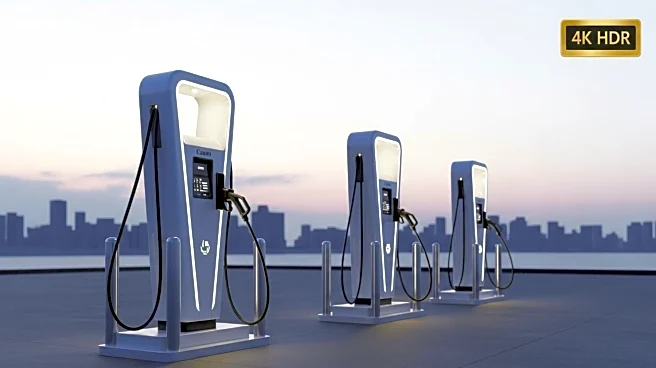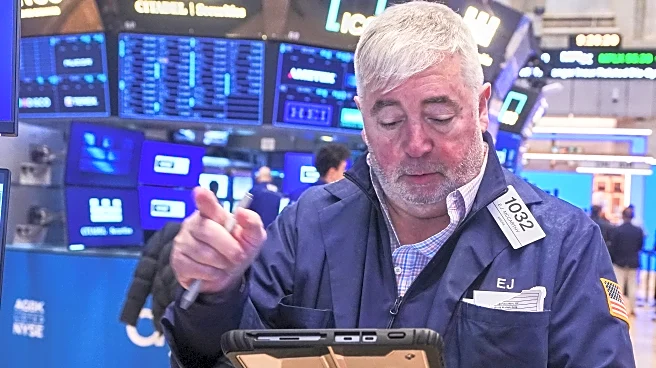What's Happening?
A coalition of major automakers, including General Motors, Toyota, and Volkswagen, has requested the Environmental Protection Agency (EPA) to roll back stringent vehicle emissions limits. These regulations, aimed at increasing the production of electric vehicles (EVs), are seen by automakers as potentially raising the cost of EVs and reducing their market share. The request follows legislative changes signed by President Trump, which could lead to a decline in EV adoption. The EPA's proposal to rescind the finding that greenhouse gas emissions endanger human health further complicates the regulatory landscape, potentially ending current limits on vehicle emissions.
Why It's Important?
The automakers' push for relaxed emissions rules highlights the tension between industry interests and environmental regulations. If successful, this move could slow the transition to electric vehicles, impacting efforts to reduce greenhouse gas emissions. The potential rollback of emissions limits may benefit automakers financially by reducing compliance costs, but it could also hinder progress towards cleaner transportation solutions. The outcome of this regulatory debate will have significant implications for the automotive industry, environmental policy, and consumer choices.
What's Next?
The EPA's decision on whether to rescind the greenhouse gas emissions finding will be crucial in determining the future of vehicle emissions regulations. Automakers may continue to lobby for favorable policies, while environmental groups and policymakers advocate for stricter standards. The evolving regulatory environment will require stakeholders to navigate complex legal and economic challenges as they balance industry growth with environmental responsibility.
Beyond the Headlines
The automakers' request raises ethical questions about corporate responsibility and the role of government in protecting public health and the environment. The potential rollback of emissions regulations could lead to long-term environmental consequences, affecting air quality and climate change mitigation efforts. The debate underscores the need for transparent and balanced policymaking that considers both economic and environmental impacts.










